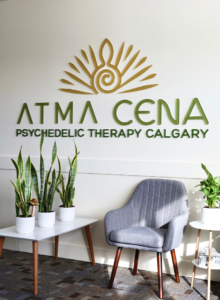Let’s start with a brief review of psychedelics, including what they are and how they differ from conventional Western medicine.
There are many substances under the umbrella of psychedelics; the common ones are:
- Psilocybin (the active ingredient in magic mushrooms)
- LSD (lysergic acid diethylamide)
- Ibogaine (the active ingredient in iboga)
- Mescaline (the active ingredient in peyote)
- DMT (various forms, including Ayahuasca and 5-MeO-DMT)
- MDMA (not a classic psychedelic)
- Ketamine (not a classic psychedelic)
- and so on.
Currently, the legal options available in Canada include ketamine in clinics and MDMA and psilocybin via clinical trials or Health Canada’s Special Access Program (SAP). This limits access to people who urgently need these treatments.
Ketamine treatments are typically 1-2 hours in duration, depending on the route of administration. During a ketamine treatment, there may or may not be someone in the room with the patient, and as soon as the treatment is complete, the patient is sent home. Leaving the clinic immediately after a session can be challenging; most psychoactive substances have a re-entry phase, where the intense effects of the medicine begin to wane. Although the re-entry phase of ketamine is not normally as intense as other psychedelics, it is possible that patients are experiencing their first altered state of consciousness. Therefore, clinics providing this treatment should have their clients fully prepared, ensure they have a safe way home, and devise a follow-up plan to support patients after their treatments.
Book a call to see if ATMA’s Introduction to Psychedelics-assisted Therapy is right for you and join the Alumni community.
MDMA treatments are typically 6-8 hours in length, during which there are two trained professionals (one male and one female) in the room. Their role is to support the patient through the process in a non-directive manner, encouraging the patient to focus his or her attention inward and embrace the experience. MDMA is particularly efficacious in treating PTSD, as it decreases inhibition, allowing the patient to view his or her trauma differently and to process it with decreased anxiety. MAPS is the main avenue for MDMA training and has been granted breakthrough treatment from some of their studies.
Psilocybin treatments are typically 4–6-hours in duration, and the protocols for this treatment are widely debated. Some believe there should be two trained professionals in the room (one male and one female), while others have done this work one-on-one with patients. So is there one right way? No; what works for some patients will not work for others, but if we are looking to create a standard way forward with these types of treatments, the most ethical approach would be to have both a male and a female present. This also allows for one person to take a break during the session if needed (e.g., bathroom break, food break).
Oregon will be the first state to offer fully legal psilocybin facilitation via trained facilitators, adopting a non-directive approach to the session (unless safety becomes an issue). The final details of this system are still being ironed out, but legalization is expected to be January 2023.
Now, back to the question at hand: is training in psychedelics worth it?
100% YES, training is worth it! There are so many details to understand regarding these medicines, and ideally, a baseline of knowledge needs to be established to help propel psychedelics to legalization. Once this baseline has been established, developing more specific training will be easier, and as it becomes available, experiential training.
As described by one of ATMA Academy’s experts, the ‘unlearning’ of certain therapeutic techniques often needs to occur in order for a non-directive approach to the facilitation session to be adopted. Further, clients are in a very vulnerable and suggestive state of mind during these treatment sessions, so it is very important that facilitators and therapists do not bring their personal issues into such sessions. Thus, learning how to take care of oneself is a key element to facilitator training.
ATMA understands that it can be challenging to jump into training for a treatment that has limited access, but without a foundation of trained professionals like you, these medicines and treatments will stay limited.
So, what can you do?
Share what you have learned about psychedelics! Whether it is from a google search or a training program, the more that the benefits of psychedelics are talked about, the more likely Health Canada is to allow these medicines as a fully legal therapy.
Finally, find a community like the one within ATMA Academy, where you are free to share, ask questions, and collaborate with colleagues. Amazing things can happen when we are around like-minded people.
Book a call to see if ATMA’s Introduction to Psychedelics-assisted Therapy is right for you and join the Alumni community.
Thank you for your time,
The ATMA Academy team




